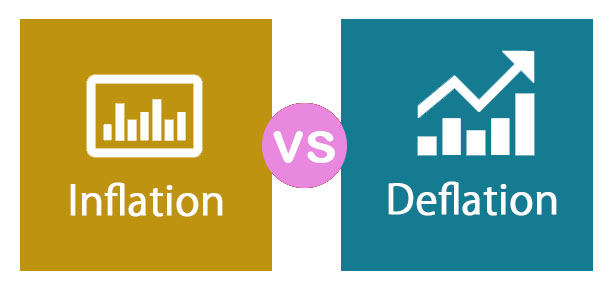Do you know how to make sound financial decisions regarding your finances? With the continuously changing economic landscape and new ideas popping up from everywhere, staying ahead of the curve is becoming increasingly difficult. To understand what may affect your wallet, it’s important to understand some key economic concepts—from inflation and taxes to macroeconomic indicators and trends.
In this blog post, we will detail several basic economic principles that all consumers need to understand to make educated decisions with their money.
Defining Economics & Types of Economic Systems
Economics is a social science that studies producing, distributing, and consuming goods and services. It seeks to explain how people make decisions about spending, investing,g and exchanging resources such as money, labor,r or land to satisfy their needs. Economics can be divided into two broad categories: microeconomics and macroeconomics.
Microeconomics studies the behavior of individual households, firms, and industries. It looks at how decisions are made about prices, wages, and production to maximize profits and efficiency. Macroeconomics examines the economy as a whole using national accounts such as GDP (Gross Domestic Product) to measure economic output.
Types of economic systems range from traditional and centrally planned economies to mixed or market-based systems. Traditional economies are based on tradition, culture, and well-established production rules. Centrally planned economies involve government control of the factors of production, such as land, labor, and capital. Mixed or market-based economic systems rely on private enterprise and state intervention.
All economic systems seek to provide goods and services in a way that is both efficient and equitable. Economists aim to design policies that enable them to achieve the best possible outcomes for society, considering factors such as scarcity, cost-benefit analysis, and externalities. By understanding the fundamentals of economics, consumers can make informed decisions about their financial future.
Supply & Demand and How It Relates to Prices
Supply and demand are two of the most basic economic concepts. Supply is the quantity of a good or service available in the market, while demand is the amount people are willing to buy at a certain price. Price plays an important role in determining how much of a good or service will be supplied and demanded. When supply increases, prices tend to go down, and when demand increases, prices tend to rise.
The relationship between supply and demand is also known as the law of supply and demand, which states that prices will go up when a product or service is in high demand but in short supply. Conversely, when a product or service is abundant but has little demand, prices will go down. This law is a fundamental principle of economics, affecting prices across all markets.
Understanding the principles of supply and demand helps consumers make sound financial decisions. By considering the factors that affect the price – such as economic growth, job availability, and consumer confidence – consumers can determine when it’s a good time to buy or sell a product or service. By understanding the fundamentals of economics, consumers can make more informed decisions about their finances.
The Basics of Fiscal & Monetary Policies
Fiscal and monetary policies are two of the most important economic tools governments use to regulate their economies. Fiscal policy involves decisions about taxation, public spending, and borrowing, while monetary policy involves setting interest rates and controlling the money supply.
Fiscal policy manages aggregate demand in an economy, allowing governments to stimulate or slow economic activity as needed. For example, if the government wants to increase spending, it can reduce taxes or increase borrowing to put more money into circulation. On the other hand, if the government wants to slow down economic activity, it can raise taxes or cut public spending to reduce aggregate demand.
Monetary policy controls the money supply and interest rates to influence inflation, employment levels, and economic growth. For example, if the government wants to stimulate economic activity, it can reduce interest rates or increase the money supply by printing more currency. On the other hand, if the government wants to slow down economic activity, it can raise interest rates or decrease the money supply by selling bonds.
Understanding the basics of fiscal and monetary policies helps consumers make more informed financial decisions. By knowing how changes in government policies can influence inflation, employment levels, and economic growth, they can better plan for short-term and long-term financial goals.
Inflation & Deflation
Inflation and deflation are two of the most important economic concepts. Inflation is when prices rise over time due to an increase in the money supply, while deflation is when prices fall over time due to a decrease in the money supply.
Any number of factors, such as increased government spending, higher taxes, or an increase in the money supply, can cause inflation. Over time, rising prices can reduce the purchasing power of consumers and make it more difficult to save for long-term goals.
Factors such as decreased government spending, lower taxes, or decreased money supply can also cause deflation. Deflation generally decreases the cost of goods and services, which can lead to increased consumer spending and economic growth.
Understanding inflation and deflation helps consumers make better decisions about their finances. By knowing how changes in the money supply can affect prices, they can better plan for long-term goals or take advantage of lower prices when possible.
FAQs
Q1: What economic principles must I understand to make informed financial decisions?
A1: You must grasp key economic concepts, such as inflation and taxes, macroeconomic indicators, and trends. Understanding these principles will help you to make smart decisions with your money.
Q2: How can I stay informed about changing economic conditions?
A2: It is important to follow reliable sources to ensure you are up to date with the latest economic news and information. These sources may include financial newspapers, websites, or magazines that cover topics related to the economy. Additionally, if you have a trusted financial advisor, they can provide you with advice and resources related to the economy.
Q3: What are some specific things I should pay attention to?
A3: There are a few key economic indicators you need to watch out for, such as inflation rate, unemployment rate, GDP, interest rates, and stock market performance. By watching these indicators, you will gain an understanding of the current economic conditions and how they may affect your wallet. Stay updated on the latest financial regulations that could potentially impact your finances.
Conclusion
It is important to have a basic understanding of macroeconomic principles and key indicators to make sound financial decisions. Additionally, keeping up with current economic news and regulations will help you stay ahead of the curve. By following these tips, you can ensure your money is well protected.
By understanding these economic concepts, you will be able to make educated decisions with your money and reach your financial goals. Additionally, having a solid grasp on the changing economic landscape will give you peace of mind knowing that your finances are in good hands.






